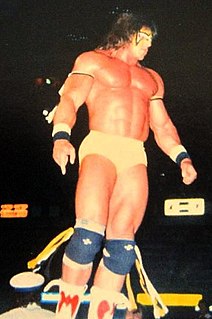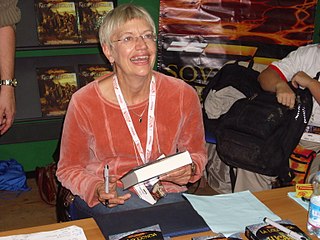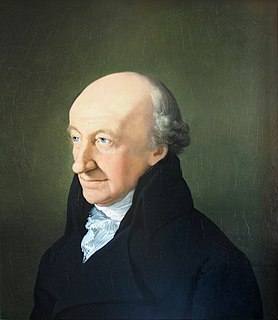A Quote by Stephen Jay Gould
If a man dies of cancer in fear and despair, then cry for his pain and celebrate his life. The other man, who fought like hell and laughed in the end, but also died, may have had an easier time in his final months, but took his leave with no more humanity.
Related Quotes
As a guy develops and practices his masculinity, he is accompanied by an invisible male chorus of all the other guys, who hiss orcheer as he attempts to approximate the masculine ideal, who push him to sacrifice more of his humanity for the sake of his masculinity, and who ridicule him when he holds back. The chorus is made up of all the guy's comrades and rivals, his buddies and bosses, his male ancestors and his male cultural heroes--and above all, his father, who may have been a real person in his life, or may have existed only as the myth of the man who got away.
In 2005, a man diagnosed with multiple myeloma asked me if he would be alive to watch his daughter graduate from high school in a few months. In 2009, bound to a wheelchair, he watched his daughter graduate from college. The wheelchair had nothing to do with his cancer. The man had fallen down while coaching his youngest son's baseball team.
Nothing is so insufferable to man as to be completely at rest, without passions, without business, without diversion, without study. He then feels his nothingness, his forlornness, his insufficiency, his dependence, his weakness, his emptiness. There will immediately arise from the depth of his heart weariness, gloom, sadness, fretfulness, vexation, despair.
He is not famous. It may be that he never will be. It may be that when his life at last comes to an end he will leave no more trace of his sojourn on earth than a stone thrown into a river leaves on the surface of the water. But it may be that the way of life that he has chosen for himself and the peculiar strength and sweetness of his character may have an ever-growing influence over his fellow men so that, long after his death perhaps, it may be realized that there lived in this age a very remarkable creature.
He that can toy with his ministry and count it to be like a trade, or like any other profession, was never called of God. But he that has a charge pressing on his heart, and a woe ringing in his ear, and preaches as though he heard the cried of hell behind him, and saw his God looking down on him-oh, how that man entreats the Lord that his hearers may not hear in vain!
No technological achievements can mitigate the disappointment of modern man, his loneliness, his feeling of inferiority, and his fear of war, revolution and terror. Not only has our generation lost faith in Providence but also in man himself, in his institutions and often in those who are nearest to him.
A man may have lived all of his life in the gray, and the land and trees of him dark and somber. The events, the important ones, may have trooped by faceless and pale. And then-the glory-so that a cricket song sweetens his ears, the smell of the earth rises chanting to his nose, and dappling light under a tree blesses his eyes. Then a man pours outward, a torrent of him, and yet he is not diminished.
Men are confused. They're conflicted. They want a woman who's their intellectual equal, but they're afraid of women like that. They want a woman they can dominate, but then they hate her for being weak. It's an ambivalence that goes back to a man's relationship with his mother. Source of his life, center of his universe, object of both his fear and his love.
The man who has given himself to his country loves it better; the man who has fought for his friend honors him more; the man who has labored for his community values more highly the interests he has sought to conserve; the man who has wrought and planned and endured for the accomplishment of God's plan in the world sees the greatness of it, the divinity and glory of it, and is himself more perfectly assimilated to it.
Is a man's body at stake? Any time a man is asked to work to pay child support, he is using his body, his time, his life - not for nine months, but for a minimum of 18 to 21 years. So the motto of the feminist with integrity is, 'It's a woman's and man's right to choose because it is a woman's and man's body at stake.'





































